History of Dutch National Ballet
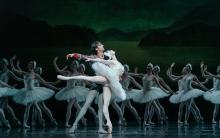
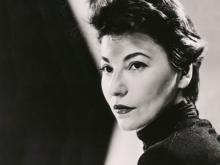
1947
Françoise Adret
Françoise Adret is head of the Ballet of the Nederlandse Opera (1947-1959), which merged with the Ballet der Lage Landen in 1959 to form the Amsterdams Ballet.
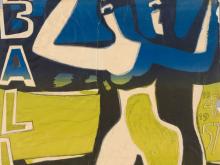
1948
Ballet der lage landen
Mascha ter Weeme founds the Ballet der Lage Landen (1948-1959).
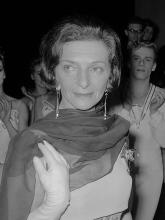
1950
Sonia Gaskell
Sonia Gaskell founds her first company in the Netherlands: Ballet Recital, the forerunner of Gaskell’s famous Nederlands Ballet (1954-1961) that became Dutch National Ballet in 1961.
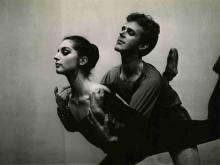
1955
Van Dantzig's first choreography
Rudi van Dantzig choreographs his first work: Nachteiland. He creates the work for Gaskell’s Nederlands Ballet.
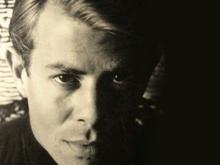
1955
Van Manen's first choreography
The first work choreographed by Hans van Manen - Olé, olé, la Margarita - is performed at the Revue Ramses Shaffy in Amsterdam. To date, Van Manen has created more than 150 ballets.
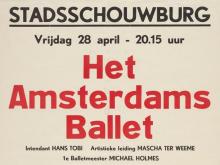
1959
Merger
Merger of the Ballet of the Nederlandse Opera and the Ballet der Lage Landen, to form the Amsterdams Ballet.
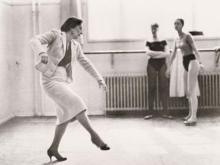
1961
Dutch National Ballet
Dutch National Ballet is founded on 31 August 1961 through a merger of the Nederlands Ballet (Sonia Gaskell) and the Amsterdams Ballet (Mascha ter Weeme). This puts an end to the ‘ballet war’.
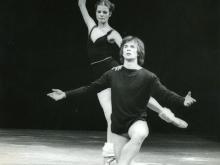
1964
Olga de Haas
At the age of nineteen, Olga de Haas (1944-1978) is promoted to the rank of soloist and one year later to principal dancer. The promising star and audience darling rose to become a legendary Dutch ballerina. Her early death came at the age of 34.
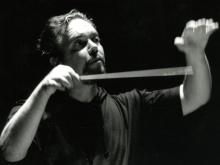
1965
Dutch Ballet Orchestra
The foundation of the Dutch Ballet Orchestra, which still accompanies performances by Dutch National Ballet and Nederlands Dans Theater today.
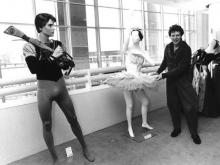
1965
Van Dantzig & Kaesen
Rudi van Dantzig and Robert Kaesen become directors of Dutch National Ballet. Until 1969, the company has three directors: Sonia Gaskell, Van Dantzig and Kaesen.
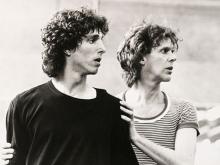
1967
Romeo and Juliet
The premiere of Van Dantzig’s Romeo and Juliet takes place on 16 February. The production is still one of the most successful full-length ballets in Dutch National Ballet’s repertoire.
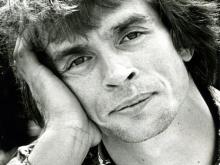
1968
Rudolf Nurejev
On Christmas Day, Rudolf Nureyev makes his debut with Dutch National Ballet as a guest artist.
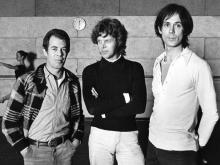
1969
Departure of Sonia Gaskell
Sonia Gaskell leaves Dutch National Ballet. The artistic directors of the company are now Rudi van Dantzig and Robert Kaesen.
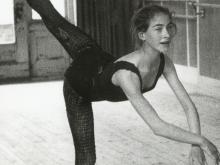
1970
Alexandra Radius en Han Ebbelaar
Alexandra Radius and her husband Han Ebbelaar join the company as principals. The couple will soon become the most famous dance duo of the Netherlands.
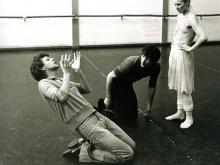
1971
Van Dantzig sole artistic director
From now on, Rudi van Dantzig is the sole artistic director of Dutch National Ballet for twenty years. He develops the company along the lines set out by his predecessor, presenting a combination of classical ballets, highlights of the contemporary repertoire and new creations.
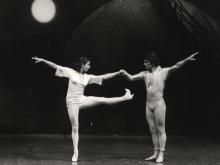
1973
Twilight
Hans van Manen, artistic director of Nederlands Dans Theater from 1961 to 1971, creates his first work for Dutch National Ballet as a freelance choreographer: Twilight. Two years later, he is appointed resident choreographer.
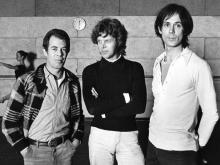
1976
The three Van's
In 1976, dancer Toer van Schayk is appointed resident choreographer, alongside Hans van Manen and Rudi van Dantzig. In the 1970’s and 80’s, the three Van’s turn out to be an artistic gold mine. Their works gain international renown for Dutch National Ballet as a presenter of daring contemporary creations.
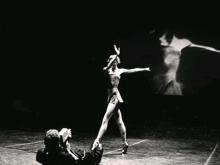
1979
First video ballet
Van Manen’s ballet Live is the first video ballet in the Netherlands and probably even in the world. The premiere takes place in Koninklijk Theater Carré, in a double bill with Life, by Van Dantzig and Van Schayk.
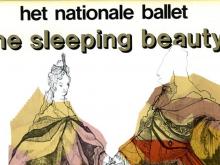
1981
World premiere of The Sleeping Beauty
The world premiere of Sir Peter Wright’s version of The Sleeping Beauty. It is an artistic milestone in the history of the company, covered on the front pages of many of the national newspapers. ‘Ballet celebrates triumph with Sleeping Beauty’.
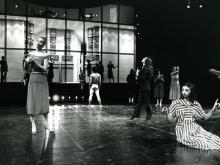
1986
Bacchanten
The company commissions Gerardjan Rijnders, an avant-garde stage director, to create Bacchanten. The production is premiered in Koninklijk Theater Carré.
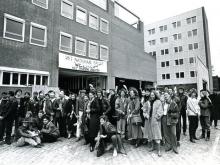
1986
Silver jubilee
The company celebrates its silver jubilee in the Stadsschouwburg, marking the transition to its new quarters on Waterlooplein: The Amsterdam Music Theatre. The new ‘house’ is shared with De Nederlandse Opera (now Dutch National Opera).
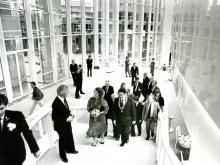
1986
Het muziektheater opent
Op 23 september 1986 wordt het Muziektheater geopend, in aanwezigheid van Koningin Beatrix en Prins Claus.